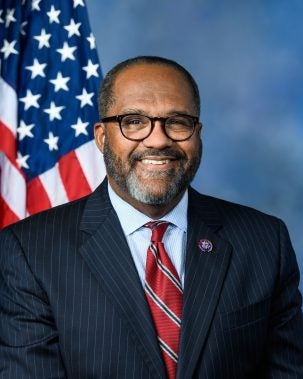Congressman Carter Introduces Resolution Recognizing 70th Anniversary of the Baton Rouge Bus Boycott
Published 1:46 pm Tuesday, February 21, 2023
|
Getting your Trinity Audio player ready...
|
WASHINGTON, D.C. – Today, Congressman Troy A. Carter, Sr. (D-La.) announced the introduction of a House Resolution recognizing and celebrating the 70th anniversary of the 1953 Baton Rouge Bus Boycott. This event was the first large-scale boycott in the segregated south and made local headlines, inspiring civil rights leaders across the region.
70th anniversary of the 1953 Baton Rouge Bus Boycott. This event was the first large-scale boycott in the segregated south and made local headlines, inspiring civil rights leaders across the region.
“The Baton Rouge Bus Boycott was a catalyst of the Civil Rights Movement,” said Rep. Carter. “Though it’s not mentioned in our history books, the four-day boycott demonstrated that change was possible and served as a starting point for one of the most consequential social revolutions in history. I am proud to introduce a resolution which recognizes the historical significance of this event.”
The full text of the resolution is below.
Resolution Text:
Recognizing and celebrating the 70th anniversary of the 1953 Baton Rouge Bus Boycott.
Whereas, in 1950, the Baton Rouge city council revoked the licenses of nearly 40 Black-owned bus services, which transported residents to and from Black neighborhoods, jobs, and businesses within the city;
Whereas the bus companies pledged to provide full and fair services to all riders, but the realities of segregation would make that pledge nearly impossible to keep;
Whereas racial segregation was a pervading and inherent part of life in the South, and the city buses in Baton Rouge, Louisiana, were a microcosm of the segregated society of the South;
Whereas, in 1953, the Black residents of Baton Rouge, Louisiana, took a courageous first step and staged the Nation’s first large-scale bus boycott, challenging segregation;
Whereas, during this time, Black bus passengers in Baton Rouge, Louisiana, were required to sit in the rear of the bus, to give up seats to White passengers, and, after paying their fare at the front of the bus, to exit and reenter the bus through the back door;
Whereas, during this time, 70 percent of the Baton Rouge bus companies’ business came from Black passengers;
Whereas, during this time, Black residents in Baton Rouge knew that protesting their unequal treatment could cause them to become victims of economic boycotts, violence, or other forms of intentional misconduct;
Whereas Martha White and other Black bus passengers were told to get up on a crowded bus by a White bus driver;
Whereas every Black passenger on the bus that day stuck together and refused to get off the bus;
Whereas the police were called to arrest the Black bus passengers, causing a walk out and a 4-day strike on local bus services;
Whereas Black church and civic leaders from all over Baton Rouge came together to form the United Defense League, with Rev. T.J. Jemison as president;
Whereas the United Defense League decided that nobody was going to ride the bus the next morning, prompting Black residents across Baton Rouge to carpool with each other;
Whereas this action cost bus companies $1,600 a day with no Black passengers due to the boycott and ceased bus operations across the city;
Whereas the boycott’s success reached far beyond the Baton Rouge city limits and gave Black people across the Nation inspiration and hope, setting the tone for the civil rights movement;
Whereas the Baton Rouge Bus Boycott represents the first large-scale, extended effort by Black people to success- fully challenge discrimination and segregation; and
Whereas, in 1956, 3 years after the Baton Rouge bus strike, the Supreme Court outlawed racial segregation on buses:
Now, therefore, be it Resolved, That the House of Representatives—
(1) recognizes and celebrates the 70th anniversary of the 1953 Baton Rouge Bus Boycott, to pro- vide an opportunity for the people of the United States to learn more about the past and to better understand the experiences that have shaped the Nation;
(2) recognizes the historical significance of this milestone of the Baton Rouge Bus Boycott;
(3) reaffirms its commitment that history should be regarded as a means for understanding the past and solving the challenges of the future; and
(4) expresses support for the Secretary of the Interior to explore how to provide appropriate markings to identify places associated with the Baton Rouge Bus Boycott.




